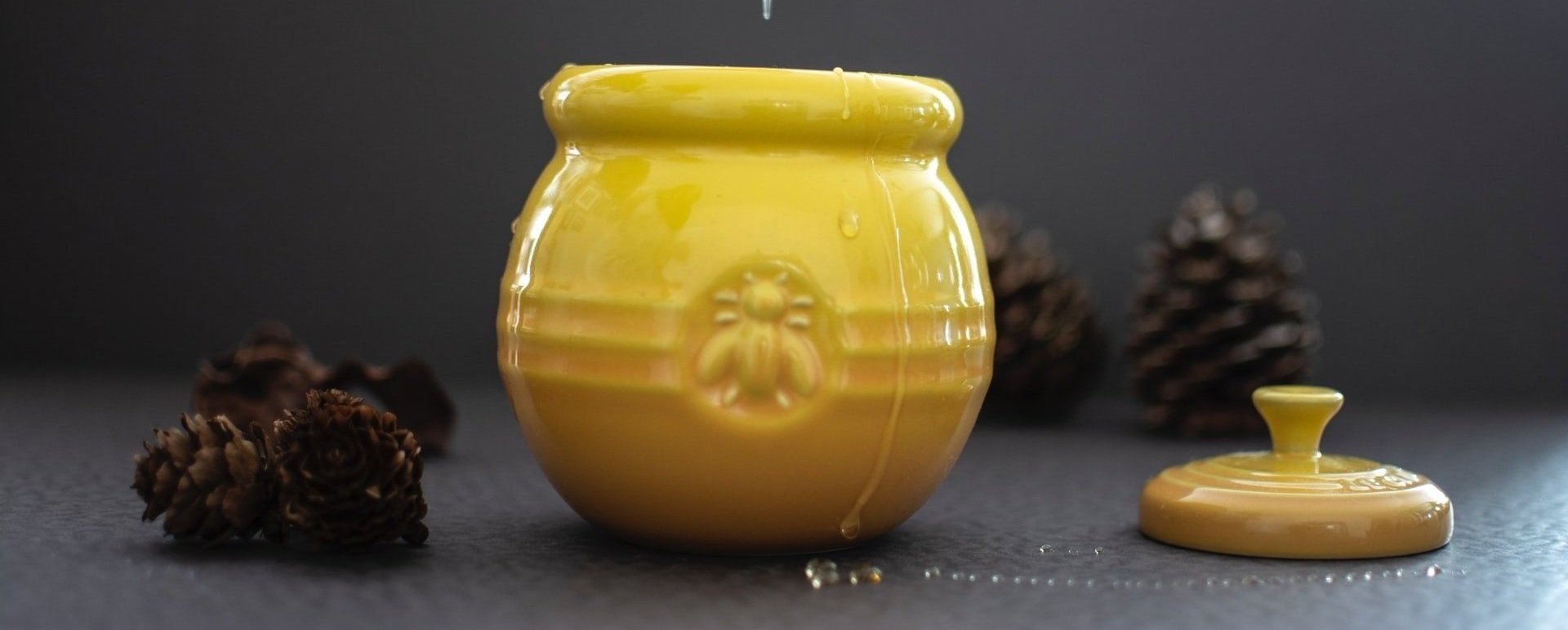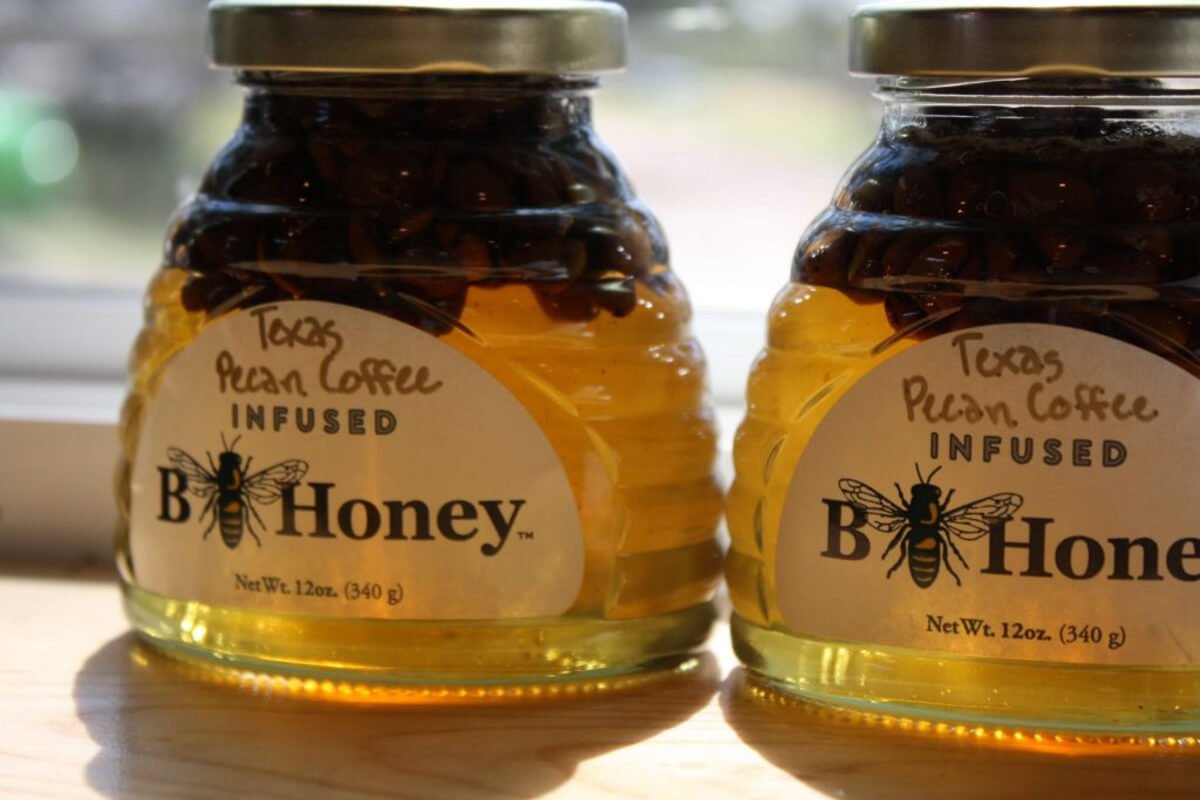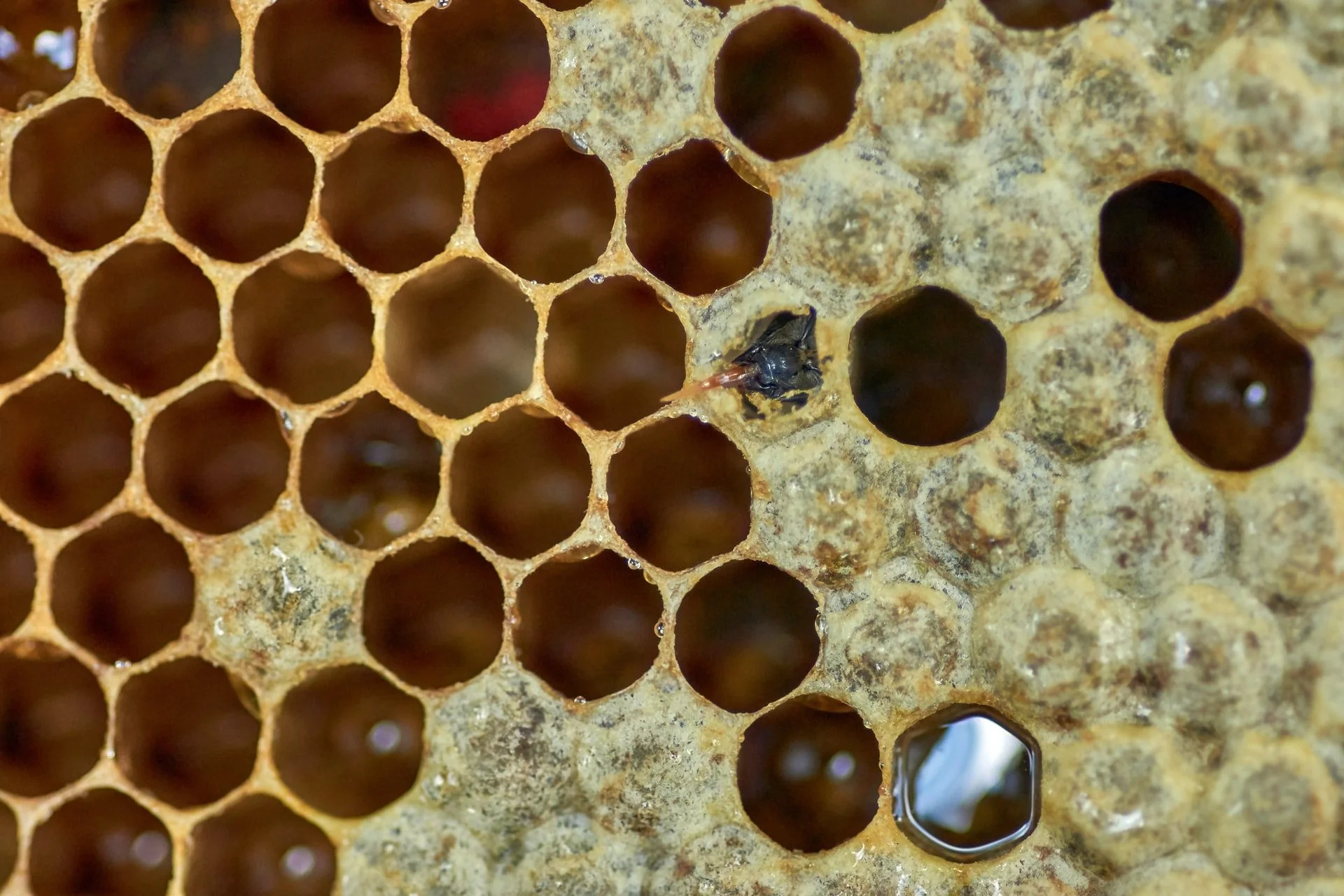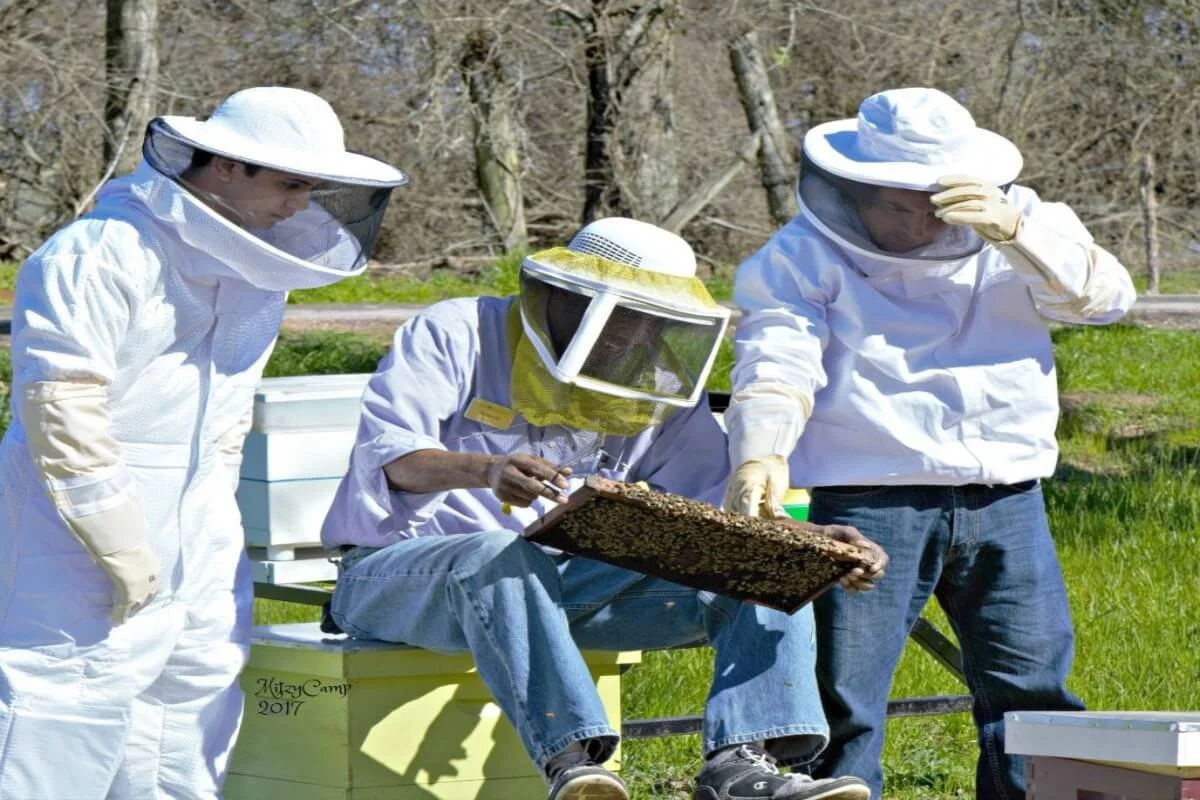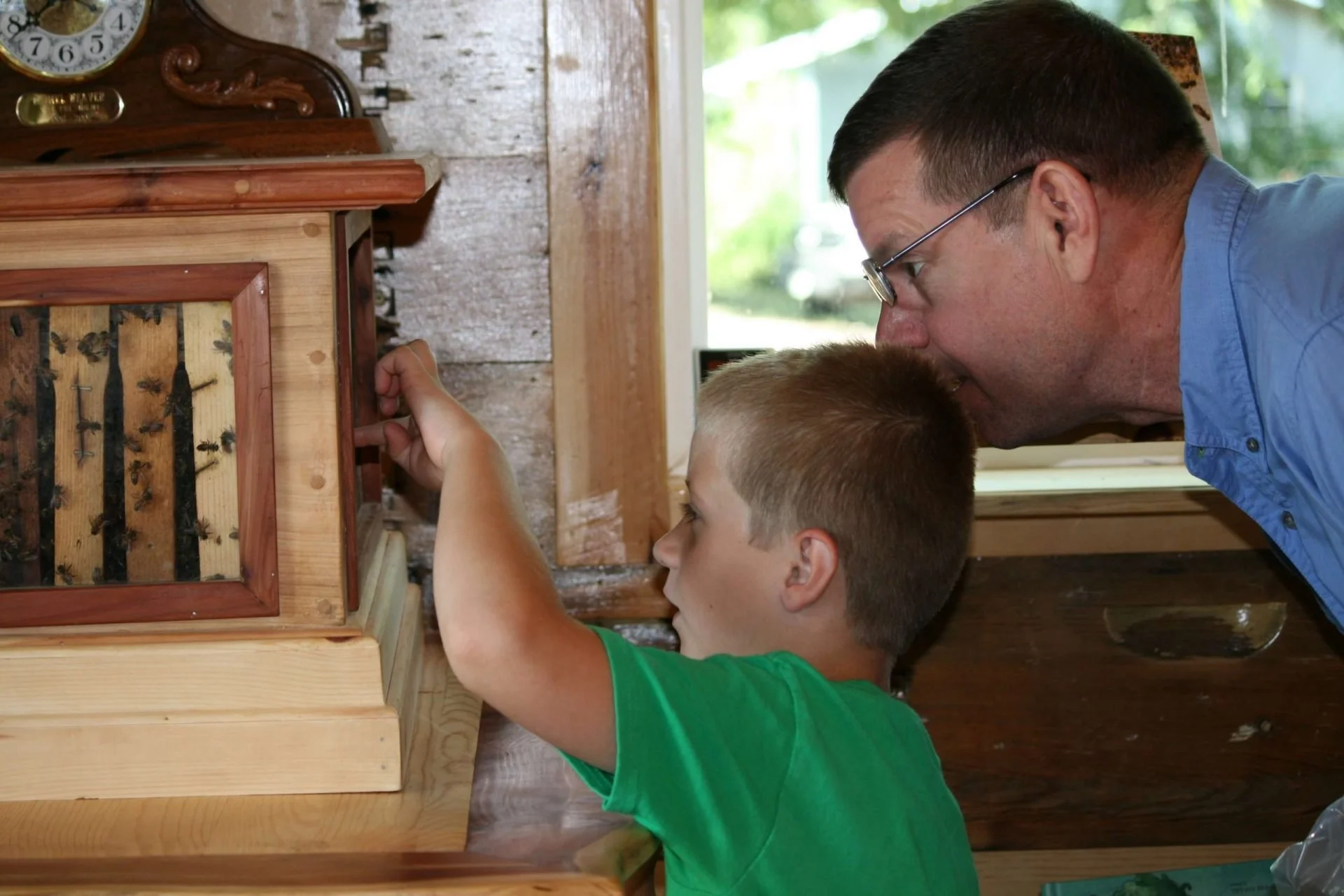Making The World Sweeter Since 1888
Discover > Business Spotlight > Making The World Sweeter Since 1888
For the Weavers, honey (how long does honey last?) has actually been part of the family for over 130 years. Thanks to efforts and endeavors of the Weaver generations, Navasota produces some of the country’s finest, chemical free honey. Bee Weaver Honey farm,run by Daniel and Laura Weaver has a history so rich, it goes all the way back to 1888.
The History of Bee Weaver
When newlywed Florence received 10 beehives as a wedding gift from her brothers, she and her husband, Zachariah Weaver, tended to it with care and passion. As a side business, it worked nicely for them, as they would travel in and around Navasota, selling their honey (What wine goes well with honey?) at local markets up till the early 1900’s.
Next in line to take the legacy forward was Roy, Daniel’s grandfather. It was the determination and dedication of Roy that catapulted Weaver honey to recognition and success. It was him who learnt the ins and outs of beekeeping. His experience paved the way for Weaver Apiaries during most of the 19th century. The company was able to produce queens, packages, and honey for customers across the world.
The Varroa Mite Infestation
However, following the varroa mite infestation of 1987, most commercial beekeepers started using very strong pesticides in the hives to keep bees alive. A varroa mite is much like a little tick that sticks itself onto the honeybee and causes diseases to entire colonies and eventually death and extinction. Diseases like the Parasitic Mite Syndrome and the Deformed Wing Virus would kill thousands of bee populations during these years.
Turning towards heavy chemical use for treating mites was never an appealing solution for Daniel and his father Binford. The cascading effect of chemicals on the hive, wax, & honey and eventually the environment was something both of them wanted to avert. They decided to branch away from Weaver honey to start their own establishment, The Bee Weaver Honey farm.
The Beginning of Bee Weaver Honey Farm
With some research and development, Bee Weaver Honey farm began to breed select bees that survived the mites attack. To do this, they would have to leave some bee yards untreated and periodically check up on them to see how many bees had survived the experiment. Out of 50 to 100 hives in each yard, Dan and Laura would find only a couple of them standing.
local texan honey bee weaver
We spoke with Laura and Dan, to give us an insight into what challenges they faced while attempting to end pesticide use at their farm.
What Were the Challenges You Faced During This Experimental Period?
Losing a colony is like losing your mama cow-No more production from her! Initially we lost many colonies to varroa mites. So, we had to work hard to build our hive numbers back up after we managed to separate the remaining bees. We also tolerated more stinging from defensive bees to get ones that would protect themselves from the mites. Unfortunately, we did lose some customers during this time, but there were others who saw the productivity of our bees and stuck with us. It took us five years but in 2000, finally, we were able to focus on gentling our breed. And our bees now make hardy, disease resistant, productive hives that are very manageable with a well-lit smoker and hive tool.
Now That Your Colonies Are 100% Treatment Free, What Does This Mean In Terms of the Quality of Honey Produced?
No chemicals applied to our hives, nor do we carry out any procedures to control varroa mite populations. Instead, we kept breeding from the species that survived without treatments until all our hives were able to fend for themselves. Now, if we see a colony suffering from mites, (and this is not very often!), we choose to replace the queen. The young BeeWeaver queen mostly cures all the problems. The honey and wax that is produced is therefore not subject to any dangerous toxins and is as organic as it can be.
What are the Varieties of Honey You Offer?
At BeeWeaver, the majority of our honey is produced in the Brazos River Valley and is a wildflower blend. The majority of nectar producing plants that bloom in late April, May, and early June help make up our blend. We have had fun infusing honey with a variety of flavors. Our best sellers are the Texas Pecan Coffee, Reaper Pepper, and Chocolate Crème Brule. We also cream our honey with Lemon, Cinnamon, and Cherry. Most recently, our honey has been used to make mead at our sister company, WildFlyer Mead Co. Our mead maker uses fresh honey and fresh fruit to make a unique bubbly beverage.
bee weaver local texan honey
Without a doubt our pure wildflower honey is the most popular and we are excited about our 2020 harvest. It is extra delicious this year with a bit more horsemint (lemon bee balm). Our honey bar is a great spot to get a taste!
Apart from Honey Products, Bee Weaver Also Offers Educational Tours And Hands on Beekeeping Lessons. Can You Share With Us, How It is to Show People Around Your Farm?
We are both an educational and experience-based apiary. We help new beekeepers learn the beekeeping basics to increase their chance of success managing their own hives. More experienced beekeepers come back for more in- depth learning or take a queen rearing course. These lessons are done in our apiaries and the student works hands on with the bees and the experts. Our experience-based tours mostly occur in our screened bee observation deck. Visitors stand in our fully screened deck and the beekeeper works a hive of bees right in front of them. Overall, we have seen an increase in success by new beekeepers who take these lessons.
Our live hive tours also help these same people grasp if they want to begin beekeeping or not. For the visitor simply curious about bees, they quickly get a better grasp of bee biology and beekeeping practices. From the young to the old we have watched people fall in love with the honeybee and understand how important they are to our ecosystem.
What are Your Aspirations for Bee Weaver Honey for the Coming Years?
We are working towards developing our property so we can host guests for overnight stays. Take a long weekend at the Honey farm! We are also adding in more covered seating and a commercial kitchen so we can whip up more goodies made with our honey for everyone to enjoy.
Where Can Our Readers Find Your Products?
Our products are sold online or at our farm store only. We are open 7 days a week. Come visit and spend a day – tour the bees, taste the honey, sample the mead!
The Beaver Honey farm status of having all-natural products and pesticide free bees is extremely unique. And this led to their expansion to a retail location, Beegoods Mercantile. Located in Navasota here is where they host visitors, tastings, and other events. With an assortment of honey products, body & bath products, mugs, clothing, jewelry and more, the Bee Weaver team is committed to providing a healthy, memorable, and educational experience to all.

